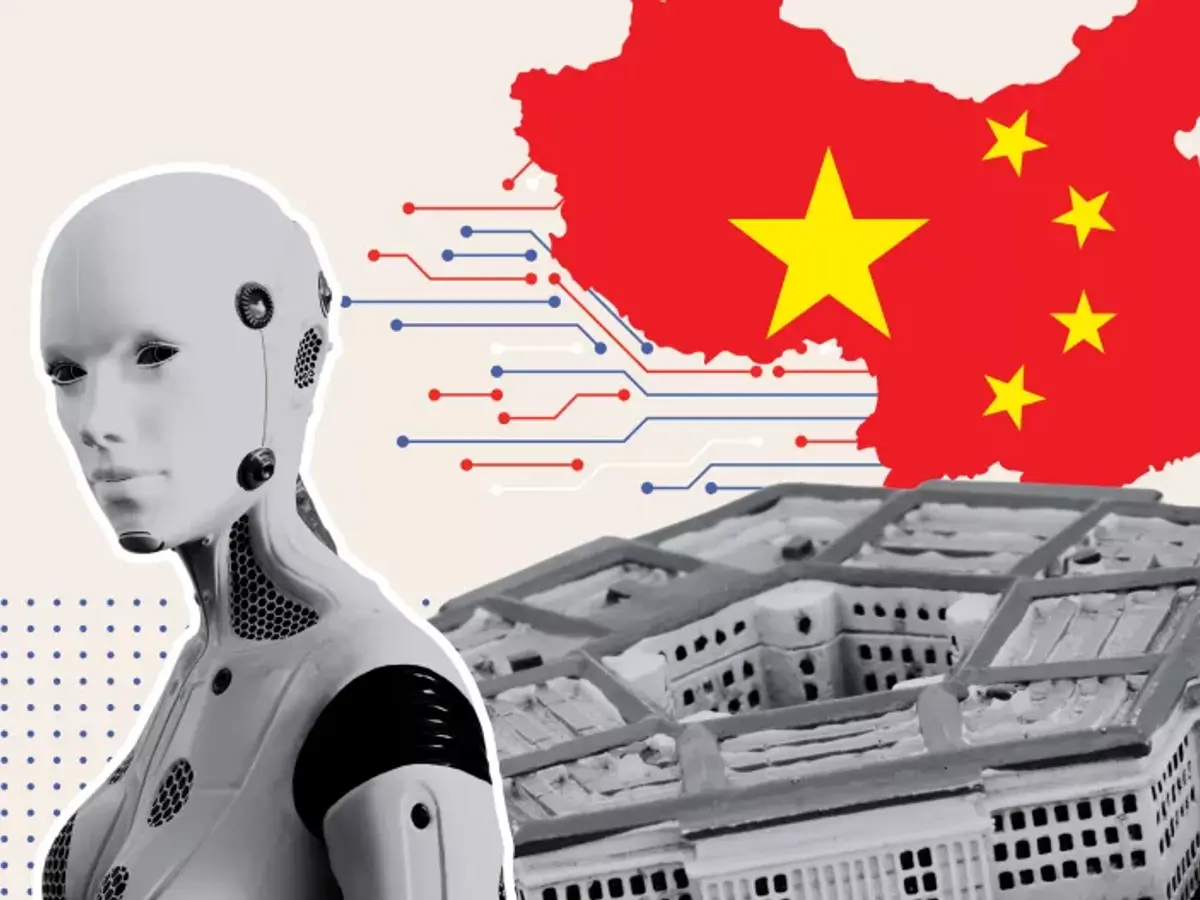China is pulling ahead in the growing tech war with the US, despite an American ban on exporting tech manufacturing products that have traditionally given them the edge. As competition heats up, the stakes for global technological dominance have never been higher, writes 1News US Correspondent Logan Church.
About an hour north of New York by train, is a highly secure lab where one American tech giant is trying to design the future of computers.
As competition heats up, the stakes for global technological dominance have never been higher, reports 1News US Correspondent Logan Church. (Source: 1News)
There, IBM designs the latest in AI tech. It’s also home to the world’s most advanced quantum computer.
They’re operating in an industry where competition is fiercer than ever – not just in the United States but across the world.
In America, there is one name that comes up in every conversation in the tech industry – China.
“We did the internet the American way, and that’s why the top tech companies of the world are ours,” US Commerce Secretary Howard Lutnick said earlier this year.
“We need to do the same with AI.”
Citing national security reasons, multiple administrations have slapped ever increasing controls on exporting American designed technology to China – with semiconductors the most cited example.
Without turning this into a university level computing class, semiconductors are effectively the backbone of everything.
Computers. Phones. Medical devices. The rice cooker in your kitchen.
And AI – which Donald Trump has promised to make America the capital of.
But China is rapidly catching up – this year a company in Guangzhou, DeepSeek, released an AI product, which rivalled the performance of the most famous AI large language model of them all, the US-produced ChatGPT, for a fraction of the cost.
“What’s surprising to me is that people are surprised that this happened,” said George Tulevski, of IBM’s Think Lab, who spoke after giving a tour of the facility.
“We’re moving as fast as we can — we have a very aggressive roadmap for our model releases… part of it is just advancing the science as fast as we can, and part of it is responding to what our clients need.”
There, to be seen, is demonstration after demonstration of how AI tech had grown in not just capability, but also commercial opportunity. One IBM staffer demonstrated mapping products that used AI to predict things like forest regrowth in Africa. Or how wildfires might spread.
Companies were using AI tools to cut down on mundane tasks – providing a synopsis of a lengthy report. Writing emails. Sourcing corporate information quickly.
“Despite how it has taken over the news cycle and water cooler conversation, it is still early.”
Companies and governments have recognised its potential, and a fighting to dominate it, according to Chinese tech researcher, Yu Zhou, who spoke to me from China’s capital Beijing.
“When I started working in Chinese technology, America was happy that China was getting into internet, and now it’s like “oh no, we don’t want them to go so fast on AI,” she said.
“I would say from the middle of the 2000s, both the Chinese government and the private sector have been pushing for technology growth. There is a realisation that Chinese companies are not copycats any more. They are making inroads into markets that the US has long considered that they have strategic control.”
She expected America to continue to try and curb Chinese growth in technology.
“In the short run, it will slow China in certain areas because they don’t have everything they want. But in the long run, it will motivate technology actors in China to find an alternative.”
China and the US have deep cultural connections – seen evidently at recent Chinese New Year celebrations in New York’s famous Chinatown.

But what does this mean for consumers?
Zhou said that we might get to a position where consumers – individuals, businesses and governments (that aren’t China or the US) will have to choose what tech ecosystem they adopt, even if there isn’t much appetite for that. Telecommunications hardware from Huawei or Apple? AI chat bots from ChatGPT or DeepSeek? Shopping with AliExpress or Amazon?
FOR MORE INDEPTH COVERAGE OF THE US-CHINA TECH WAR, GO TO TVNZ+


